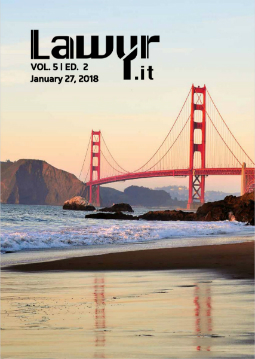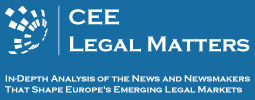Introduction
The aim of this article is to analyze one of the absolute grounds for refusal of trademark protection, specifically public policy and accepted principles of morality in connection with illegal activities. The article is focused on decision-making practice of the European Union Intellectual Property Office (further as “EUIPO” only) with an insight into decision-making practice of Industrial Property Office in the Czech Republic.
The establishment of the European Community, latter European Union (further as “EU” only) whose target was to create a single market, obviously let to the creation of institute of Community trademark, latter EU trademark (further as “EU trademark” only). EU trademark protects trademark registered within the EU territory. At the same time, no one should omit the existence of national trademark law, which was here before the EU was established and after the establishment is strongly influenced by the implementation of directives. Principle of territoriality therefore still exists; a new regional trademark territory was founded. The EU institution which deals with EU trademark protection (but not only) is called EUIPO with the seat in Spain, Alicante.
It is understandable that all signs cannot be registered as trademarks. Exceptions can be found in the article 7 Regulation (EU) 2015/2424 of the European Parliament and of the Council of 16 December 2015, the list is exhaustive – the possible existence is researched by examiners ex officio.
For better understanding will be further analyzed public policy and accepted principles of morality – the meaning of these terms go along with the point of view of a so-called reasonable person with normal levels of sensitivity and tolerance. It is necessary to research the overall impression of signs, not the outer factors.
1. Public policy and accepted principles of morality
EU is a mixture of ethnicities, religions and cultures. It is government’s responsibility to protect citizens – EUIPO has the responsibility to protect citizens of the Member States from signs which are considered contrary to public policy or accepted principles of morality. At the same time people must know that there are rules which have to be adhered.
Under the EUIPO Examiner’s Guidelines public policy is defined as the body of all legal rules that are necessary for a functioning of a democratic society and the state of law. Accepted principles of morality are defined as rules that are absolutely necessary for the proper functioning of a society. Both are territorial concepts that may evolve overtime. Trademarks to be contrary to public policy and accepted principles of morality must address a real danger and not just any violation of rules (EUIPO, 2017).
The trademark protection cannot be granted notwithstanding that the grounds of non-registrability (signs which are contrary to public policy or accepted principles of morality) are obtained in only part of the EU (Art. 7 par. 2 Regulation (EU) 2015/2424).
EUIPO and Czech Intellectual Property Office do not distinguish between these two principles, the final decision contains only the term “contrary to public policy or accepted principles of morality”. The conflict is based on objective criteria, while the perception of relevant public is essential but not fundament as with “contrary to accepted principles of morality” (WEISS, 2016).
EUIPO in guidelines underlines, that notwithstanding the perception of relevant public, sings which are considered contrary to public policy are usually:
• Trademarks that contradict the basic principles and fundamental values of the European political and social order and the universal values on which the EU is founded.
• Trademarks which consist of names of individuals or groups connected with terrorism (according to Common Position 2001/931/CFSP adopted by the Council of the EU).
• Furthermore contrary to public policy are usually considered dishonest signs or sings instigating racial, political or religious intolerance, sings which promote violence, racisms, crimes etc. In some cases contrary to public policy can be considered signs with the names of state officials, political parties and state institutions (Úřad průmyslového vlastnictví, 2016).
Contrary to accepted principles of morality are usually:
• Trademarks which consist of the symbols and names of unconstitutional parties or organizations which are prohibited in Germany and in Austria and symbols of totalitarianism.
• Pejorative, discriminatory, indecent and vulgar signs, if so-called reasonable person with normal levels of sensitivity and tolerance would feel that.
2. Trademarks contrary to public policy and accepted principles of morality in connection with illegal activities
The scale of illegal activities is large. It is impossible to present the exhaustive list of illegal activities, which are excluded from registration; nevertheless it is possible to present the non-exhaustive list of illegal activities which describes not just the general overview. The conflict according to illegal activities consist of conflict with public policy (promotion of violence, terrorism, drug dealing) and conflict with accepted principles of morality (disgrace).
3. EUIPO decision-making practice
3.1 Although the Second World War ended more than seventy years ago, this dramatic history is still very emotional for most of the society. The public needs protection from the memories of the past connected with Nazi regime.
As for example, the trademark application “Hitler” was rejected (EUIPO, 2015). Rejected was also the application “Panzer Corps” (armed forces of Nazi Germany) which consisted of the eagle on the black-white-red color scheme and the text was written in blackletter typeface (German) Fraktur (EUIPO, 2012). For the same reasons was rejected the trademark application “Luftwaffe” (air forces of Nazi Germany) (EUIPO, 2008). Fact, that these applications did not incorporate swastika, is absolutely irrelevant, as they incorporated other notorious symbols of Nazi Germany.
3.2 According to Common Position 2001/931/CFSP adopted by the Council of the EU, trademarks which consist of names of individuals or groups connected with terrorism are rejected. It is strictly forbidden to promote activities associated with terrorism. In the view of this fact the trademark application ”BIN LADEN” was rejected (EUIPO, 2004). The argumentation that Bin Laden is a common Arabian name and name of the applicant as well was found irrelevant, as the public would perceive this trademark as a promotion of terroristic activities (the name of the former leader of Al-Qaeda).
Nevertheless, the trademarks “POT” and “DADA” were registered, although they could associate the names of Pol Pot, leader of Khmer Rouge and Idi Amin Dada, former Ugandan president whose presidency is characterized by human rights abuses, political repression, extrajudicial killings, corruption etc. The reason of registration may be the fact that trademarks consist of part of the names only, so the association is not evident (EUIPO 1996, EUIPO, 2000).
The trademark application “eta” was submitted by the Czech company of the same name (EUIPO, 2009). Although in the Czech Republic this trademark does not associate terroristic activities, in another parts of EU, especially in Spain it would, as ETA is an acronym for Euskadi Ta Askatasuna, the formerly armed leftist Basque nationalist and separatist organization in the Basque Country. For the same reasons were rejected trademark applications “HAIKA” (new Basque independence group) (EUIPO, 2013) “IRA” (The Irish Republican Army) (EUIPO, 2010) and “AL AQSA Cola” (similar sign which could be associated with the al-Aqsa Martyrs' Brigades, a secular coalition of Palestinian armed groups in the West Bank) (EUIPO, 2004).
At the beginning of 2015 a terrorist attack to the French satirical newspaper Charlie Hebdo was committed in Paris. The phrase “JE SUIS CHARLIE” or “PRAY FOR PARIS” became common slogans of support, mainly in social media. EUIPO adopted a priori an attitude of high probability of non- registrability of these types of trademark applications (EUIPO, 2015).
3.3 Applicants sought trademark protection for signs associated with mafia. Unfortunately the decision-making practice in these cases is disunited. The trademark application “BOSS OF MAFIA” was rejected, as mafia is dangerous organized group dealing with illegal activities (EUIPO, 2016). Although the trademark was supposed to be registered for computer game products, the lenient attitude was not adopted.
Et vice versa aforesaid, the trademark application “MAFIA II” was registered for computer games products (EUIPO, 2012). EUIPO dissimilarly stated that public would not perceive the world mafia as an organized crime, since nowadays “mafia” is used in everyday conversation not always connected with criminal law.
4. Examples of Czech decision-making practice
The Czech decision-making practice, if concern public policy and accepted principles of morality as absolute grounds for refusal of trademark protection in connection with illegal activities is usually associated with narcotics.
Trademark application “TRÁVA 20 CIGARET S FILTREM” (translated as “WEED 20 FILTER CIGARETTES”) sought the trademark protection for tobacco products (Úřad průmyslového vlastnictví, 2008). The sing consisted of the world “tráva” translated as a slang world for marijuana and of colorful spiral. The overall impression therefore obviously reminded not cigarettes but narcotics. The applicant argument of the advertising technique exaggeration was found irrelevant.
Et vice versa was registered trademark “Extáze” (translated as “Ecstasy”) (Úřad průmyslového vlastnictví, 2005). It was found that public would not associate the trademark with narcotics, as ecstasy is a common world perceived also as religious or emotional ecstasy.
Conclusion
Although the Regulation (EU) 2015/2424 does not provide the definition of public policy or accepted principles of morality, these principles were defined in EUIPO Guidelines. Nevertheless, only the decision-making practice can provide the full understanding. Trademarks can be considered contrary to public policy or accepted principles of morality due to many reasons, this article achieved to analyze the reason connected with illegal activities. So far EUIPO has ruled that applications due to this reason will be rejected, if they consist of symbols reminding Nazi regime, terrorism and mafia. Industrial Property Office in the Czech Republic beside these deals the most with trademark applications associated with narcotics.
This article represents an exclusive preview from our next issue, which will be published in June 2017.






